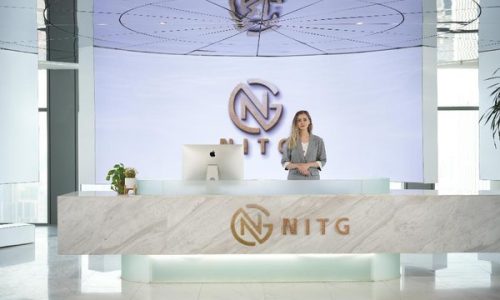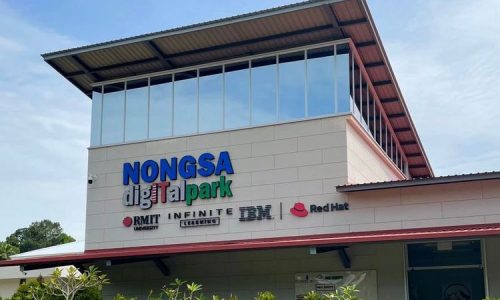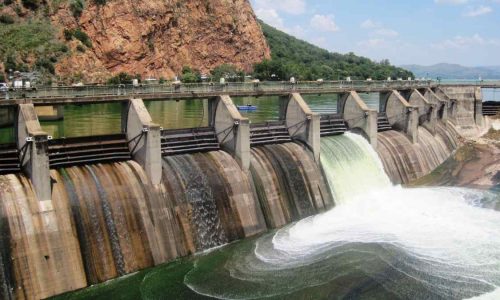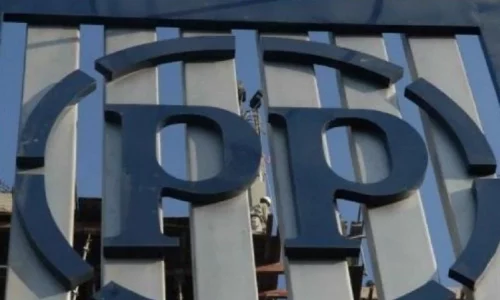PT Indonesia Infrastructure Finance (IIF), a private non-bank financial institution under the Finance Ministry, is offering financing opportunities to foreign investors and companies who want to finance their projects in Indonesia.
IIF Chief Executive Officer, Reynaldi Hermansjah, said that foreign investors could apply through the company if they have a feasibility study on a project with potential success.
“For example, there is a data center project owner, which is a multinational company from the United Kingdom. They invest in Indonesia and seek financing from us,” he told Indonesia Business Post on July 11, 2022.
According to Hermansjah, foreign investors are not subject to any special requirements. IIF is willing to fund their projects if they wish to invest in Indonesia to develop infrastructure. All domestic and foreign investors are subject to the same conditions.
IIF is a project financing company that lends money to corporations for greenfield or new projects, unlike banks that prefer to provide loans for brownfield projects.
Interesting offers
Hermansjah said the company offered complimentary financing that banks cannot provide. A company may approach a bank for funding for a 10-year project, and the bank can only finance it for five years. In this instance, IIF can participate in the project’s budget from the sixth to the 10th year.
“The conventional bank is happy because they still can secure the project. The project owner is equally happy since they can materialize the project. And we are pleased because we can finance it,” he explained.
Hermansjah cited toll roads as an example. The first five years of a toll road project usually result in negative cash flow. Traffic volume of vehicles is still relatively low. However, the toll road operator must pay its debts. In that case, IIF may provide junior debt or subordinate financing for the project.
“We call it a cash deficiency support facility since the developer can obtain loans to pay the interest on their previous debt. This is what makes us unique in the infrastructure development industry,” he said.
The interest rate on IIF’s loan facilities is higher than the conventional bank’s, according to Hermansjah.
“However, IIF offers something that banks can’t do. The company can finance green field projects, a start-up project that requires only a permit, a plot of land, and a contract,” he said. As for the lending terms, the company can provide loans up to 18 years, such as for a clean water management project in East Java.
The collateral for the loans varies depending on the project. To ensure that the project is developed on time, on budget, and target, the IIF will require collateral or a commitment from shareholders of the project developer.
Compliance
Along with interest, term loan and collateral, IIF requires that companies using its financing projects comply with the government’s Environmental, Social, and Governance (ESG) principles.
“We do not believe the parties that receive our loans will be able to repay the money on time and in full. We must ensure that the project they develop will not interfere with protected forests and will not disrupt the people who live in the surrounding areas,” Hermansjah said.
In contrast with conventional banks and other financing companies, IIF also carries out ESG due diligence for any projects they will finance, apart from technical, legal, and financial due diligence. For example, if a company wants to develop a mini-hydropower plant and needs to make a new channel for water flow and build a new dam, IIF will make sure the project will not disrupt the river biota and the people whose water source is from the river.
“A financing model based on ESG is one of the reasons why we established the IIF,” he added.
Projects
According to Hermansjah, several multilateral agencies and the finance ministry have proposed the development of a specific and sustainable-based financial institution.
Apart from state-owned enterprise PT Sarana Multi Infrastruktur (SMI) as the government’s representatives, IIF shareholders include International Finance Corporation (IFC), Asian Development Bank (ADB), German Investment and Development Corporation (KFW DEG) and Sumitomo Mitsui Banking Corporation (SMBC).
As of 2021, the company already financed 17 infrastructure projects, including toll roads, renewable energy, telecommunications, transportation, and several other projects.
“Last year, IIF financed the first Indonesian public-private partnership of Makassar-ParePare train project [in South Sulawesi]. IIF also financed a data center project in telecommunications sector and a mini-hydro project,” Hermansjah said, adding that IIF will finance the Pacific Satelit Nusantara satellite project in 2022.
One of IIF’s significant portfolios is renewable energy, including wind power plants, mini-hydropower plants, solar panels, and biomass. In addition, the company is exploring the possibility of potentially financing geothermal energy.
IIF continues to finance fossil fuels, particularly in the oil and gas sector. However, he said the company would not finance upstream oil and gas projects since drilling activities destroy the environment. IIF can only provide financing for midstream to downstream oil and gas activities.
According to Hermansjah, IIF is also seeking possible financing for its project in the upcoming capital city of Indonesia. The new capital, called Nusantara, is located in East Kalimantan.
“Investors who wish to develop solar panel projects, housing for civil servants, etc., and have a comprehensive feasibility study may apply to us for a loan facility,” he said, noting that IIF usually finances 70% of the project investment value.
The company recorded an income of IDR951 billion and a net profit of IDR53 billion in 2021. According to Hermansjah, the company aims to increase its investment assets by 30% and net profit by 20% to 25% by the end of 2022.










